The Confessions of Thomas Quick: An interview with Brian Hill
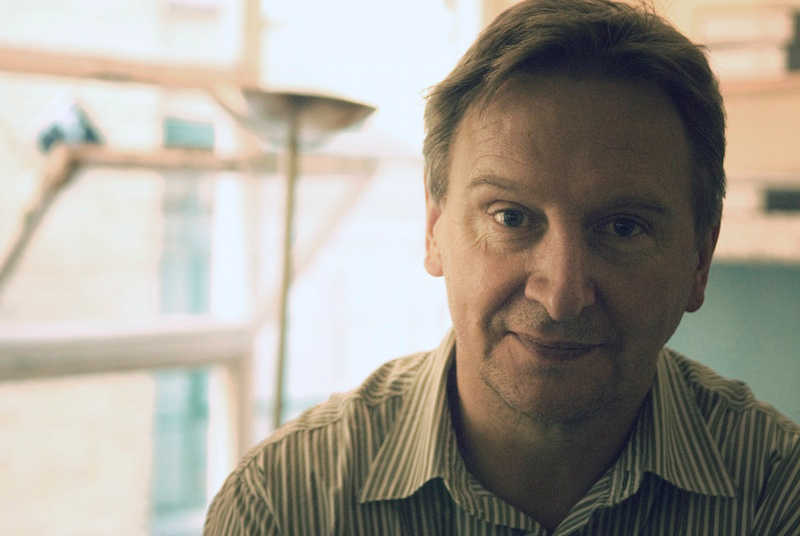
The Confessions of Thomas Quick looks at the life of Sture Bergwall, Sweden’s first serial killer: his incarceration in a psychiatric facility, his conviction for multiple murders and his eventual release. This fascinating exploration shows a troubled man, starved for attention and addicted to medication, who admitted to heinous crimes, before recanting his confessions. We sat down with Brian Hill to ask him about the film, his motivations for making it, and the potential effect it might have on prospective audiences.
What initially drew you to this story and inspired you to make this film?
The first I heard of it was a small piece in a British newspaper about this man who had withdrawn his confession and, of course, the more you look into this story, the more you start to think “this is the most incredible story I have ever heard”. Absolutely extraordinary, and as somebody who makes his living telling stories, you couldn’t walk away from this one. The question was whether I could tell that story and keep it great.
There were over 50,000 pages of information and case files, so how did you go about sifting through the information?
Clearly Jenny, she had read everything (a journalist who had gone through all 50,000 pages and reported closely on the case). She is probably the world’s leading expert on Thomas Quick, apart from Thomas Quick himself. She’s great, she’s very articulate. Obviously we wanted Thomas Quick himself. I explained what I wanted to do and he was on board. Then it was a question of finding all the other people. Some of them we could get and some of them we couldn’t. I was very sad we couldn’t persuade the therapist Birgitta Stahle, the policeman Seppo Penttinen or the prosecutor Christer van der Kwast. They were a bit suspicious, they thought it was going to be a hatchet job.
The rest of the film is actually quite balanced. It’s not just saying that he is completely innocent and everyone wronged him. Jenny in particular says at one point that he has got to carry this guilt over wasting so much time, when people could have been looking for the real killer. So do you think they were reserved because they were concerned about being portrayed negatively, or was it something that they had put to bed?
They had been pretty comprehensively ridiculed by a lot of people in Sweden who were embarrassed by it, quite frankly. I think most people would agree that what happened in that clinic was wrong, but I don’t want to make a film where I’m kind of pointing a finger at you and accusing you of being dishonest or in any way malicious in what you were doing. I do believe they were genuine, they believed in this theory of repressed memories. It wasn’t just common for that clinic, or for Sweden it’s happened in this country, it’s happened in the United States. This theory took hold, and they were clever people who genuinely believed that they were helping to understand a serial killer, and therefore advancing science, and therefore saving lives in the future. But there became a kind of cult, and the characteristics of a cult are that they don’t listen to anything from the outside, they just reinforce each other’s beliefs.
So just on this note of who you chose to interview, was there anyone else you would have included, such as his (Quick’s) other six siblings?
Obviously his brother, StenOve, takes part in the film. I did try a couple of other siblings and they didn’t want to take part, which is fine. I thought, as long as I’ve got StenOve, that’s good enough. I was very pleased that Joran Franzen [accepted], who had worked at the clinic and had been one of the people treating him. He took a lot of persuading, not because he didn’t trust me, but because he thought he’d said enough about this case. But I did persuade him and I was very pleased about that.
Crime dramas have always been a fascination in our society, particularly those coming out of Scandinavian countries. Was it in the back of your mind that a story like this would sell well?
Yeah very much so, I’m a big fan of Scandinavian “noir”, in novel form and on the screen. I like the idea that all this really bleak stuff comes out of these really well-ordered countries, which is quite odd. I wouldn’t even try to figure out why, in terms of the psyche of Scandinavian people, but that was obviously a big draw for me. Also, purely in terms of marketing the film, you can tap into this idea that this is a Swedish/Scandinavian thriller. People who watch things like The Killing, The Bridge, and Girl with a Dragon Tattoo might go “ok, let’s have a look at that”. So there is that kind of element as well.
Going back to the “cult” atmosphere that was created around the case, it’s a term that I am a little bit wary of using. When in an investigative environment, do you think this atmosphere develops, or do you think there was something very specific about these circumstances that made everyone involved really determined to find the perfect subject?
I think when people describe the perfect storm where everything comes together, this is what happened. He went into that clinic with nobody knowing he was going to say he was a serial killer. He was very lonely, he wanted to be noticed, and they wanted success. They had this theory that if you committed serious crimes, it was because you witnessed them as a child, because you then buried the memory of seeing them. If they could help somebody to relive those memories, they wouldn’t need to commit crimes anymore. So when he came along and talked to the therapist and realised they had this theory, he thought “I’ll give it a go”. For them, they thought “well, we can solve the riddle of the serial killer with him”. It was a combination of a very suggestible therapy and drugs, and all this love and attention just created this dangerous mix.
Tying in to what we have said about Scandinavian noir and this cult atmosphere, how important to do you think it is to our society as a whole to have this figure to pin all these murders on, as a sort of bogie man – particularly somewhere like Sweden, where there is relatively low crime and where there hadn’t been a serial killer before?
It’s not peculiar to Scandinavia or Sweden – all sorts of cultures have a bogie man. I think it’s fairly common throughout the world, but there was this explosion of interest throughout the 80s with Silence of the Lambs and then American Psycho. I think, possibly if you live in a really well-ordered society like Sweden, then it’s good to have these things that scare you. I’m sure some sociologist could explain it better but he (Quick) picked up on this mood. He saw Silence of the Lambs and read American Psycho and collected information from it.
Which makes it fascinating that nobody around him said: “Oh, that sounds familiar, or that is all fitting in a little too neatly, maybe we should expand our research?”
I mean, these stories were so grotesque that they wanted to believe them. The story about him being raped by his father, and his mother coming in with the baby dangling between her legs, which they then cut up and eat. I mean, who believes that!
But then also, with six other siblings, it would have been fairly easy to corroborate these stories or find some evidence of continuous abuse, or something, going on.
Yeah, and there is no record of his mother ever being pregnant at that time. But that would have meant destroying the theory, and you don’t want the facts to get in the way of the theory, do you?
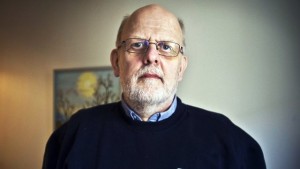 With Sture, he was obviously very lonely, and the drugs didn’t help, but he is also very clever and playing the game a bit.
With Sture, he was obviously very lonely, and the drugs didn’t help, but he is also very clever and playing the game a bit.
Oh, he was very clever. He just figured out what they wanted and he was able to give them what they wanted. He knew that once he gave them what they wanted, the more they would praise him and give him attention. So he started making the stories even more grotesque and the worse they were, the better they liked him.
So he was getting all the attention he had been missing, and living a pretty decent life, albeit in an institution, but within boundaries that were probably very beneficial to him in a lot of ways.
Yeah, he had a much better life in there than he did outside, because outside he was a drug addict. Well, I suppose he was a drug addict inside, but he was at the point of sniffing cleaning fluid outside. He didn’t have any friends, he couldn’t admit he was gay, he had no job. He was just drifting around. Inside, he had a computer, he was online, he could get whatever meals he wanted. I mean, if you are going to get into a psychiatric institute, I suggest you do it in Sweden rather than England!
Let’s switch a little bit and talk about how the film was shot, the different modes of storytelling, from direct interviews to the recreations. Can you tell us why you chose those mediums? They worked very well to create things like states of psychosis and delusion.
I knew that one element would have to be good interviews with key characters. Then we got that amazing footage of him with the police at the crime scenes, shaking about and mumbling and falling to pieces. Extraordinary footage, which was available (because it was Sweden). I knew we wanted that, but I also knew we wanted some dramatic reconstructions, because otherwise it becomes a very talking-head kind of film. It is quite heavy with that anyway, but the dramatic reconstructions give you some relief from that. I suppose another key decision we made was that in the dramatic reconstructions, we would have dialogue, which you don’t normally get in big documentaries. But we had access to all these manuscripts and his medical records, so we knew we could put dialogue in without being accused of making it up. I was quite anxious about the reconstruction, because quite often you don’t have the budget to get the good actors etcetera, but I was really helped by the fact that, in Sweden, their actors are so good, and the casting director did a terrific job. I spent a long time in the edit, so I had a good idea of where the dramatic reconstructions would go.
Yeah, because you’ve got a fairly linear story where things are already mapped out.
Yes, that’s the thing with making a past tense story – you know what the story is from the start and the only issue, really, is: can you tell that story and make it interesting?
What is Sture’s life like now? Is he living off, perhaps not the glory of it – but is it still a major factor in his life? Was doing this documentary a relief for him?
I don’t think he was wary of doing it, but I don’t think it was a release either, because he has told his story quite a lot. He leads a very regular life. I mean, he is writing a book about it all, which you would, but people know who he is and they leave him alone, nobody bothers him. Can you imagine? In this country he’d be in hiding, but the press don’t bother him, they have a much saner attitude towards this sort of thing in Sweden.
So I guess the final thing I want to know is, in your personal opinion and after all the research you have done (putting aside the fact that the convictions have been dropped against him, and given his mental health issues and the fact that he was very clever and manipulative) is there a possibility that he could have committed any of the murders?
I don’t think so, but the intention wasn’t one of those films where I was putting my opinion forward the whole time. I want the audience to make their mind up and that’s why I was very keen to have people in the film who believe he is guilty, despite the fact that he has been cleared of all the crimes. There are people like Goran Lambertz, who was the Chancellor of Justice, and you don’t get to that position by being a dimmo. So he is a bright guy, and he believes he did. So I want the audience to leave the cinema going: “I don’t know, did he, or didn’t he?” If they do that, then I have succeeded.
Yassine Senghor
For further information about Brian Hill visit here.




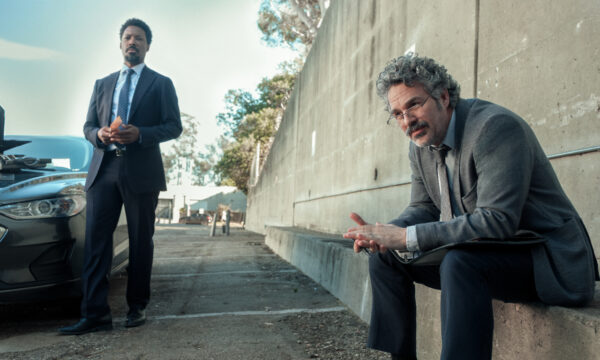
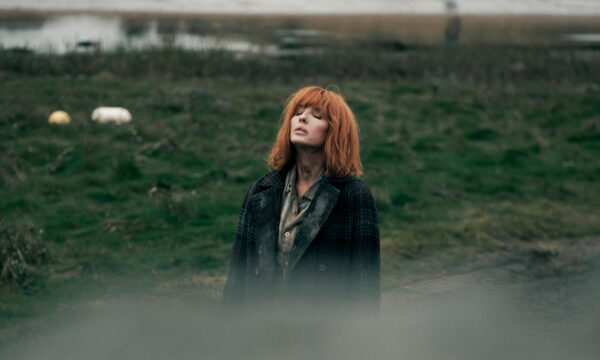
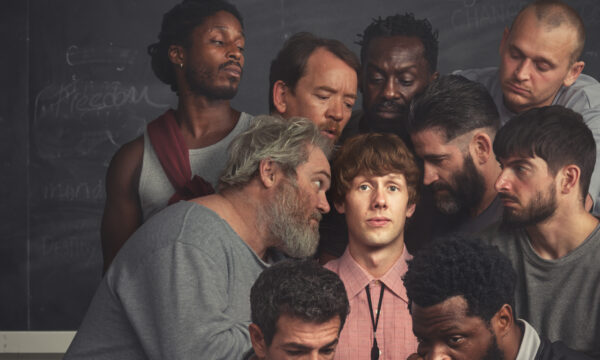
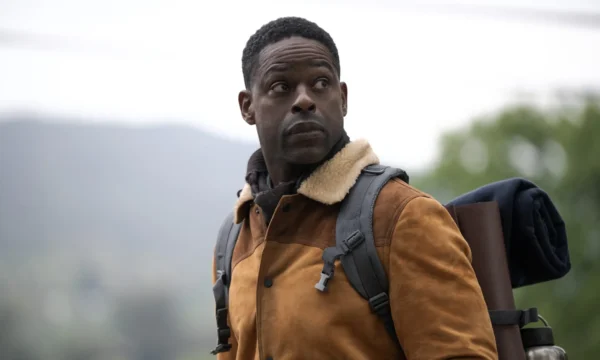



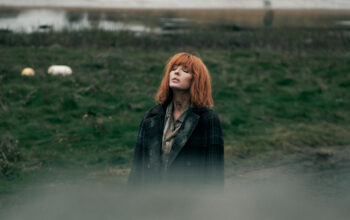







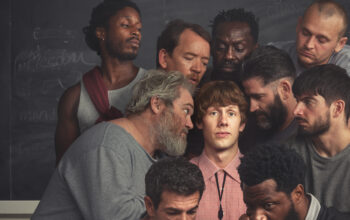
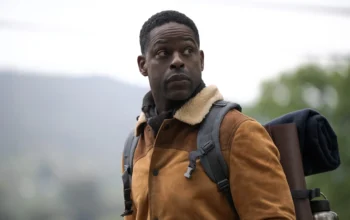

Facebook
Twitter
Instagram
YouTube
RSS